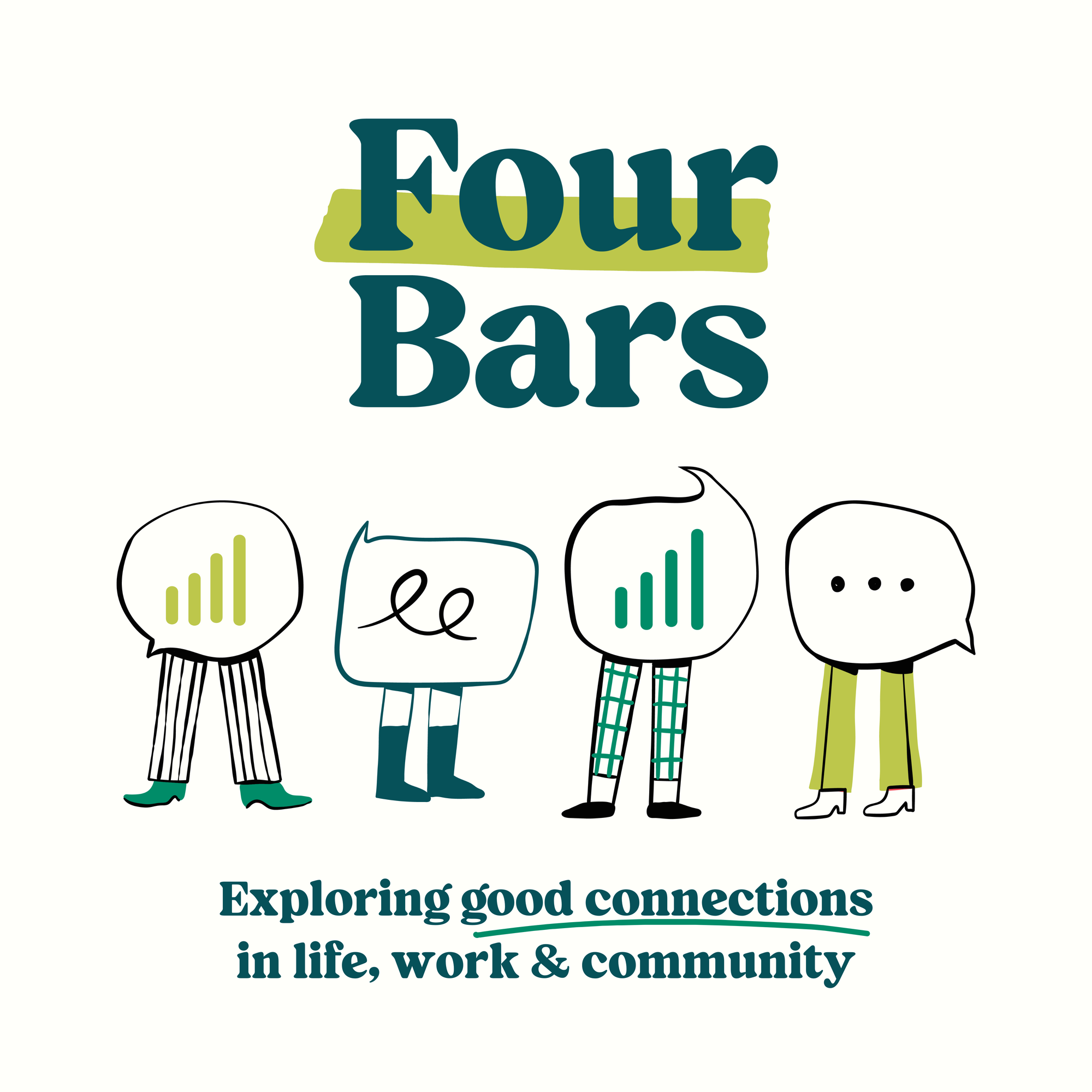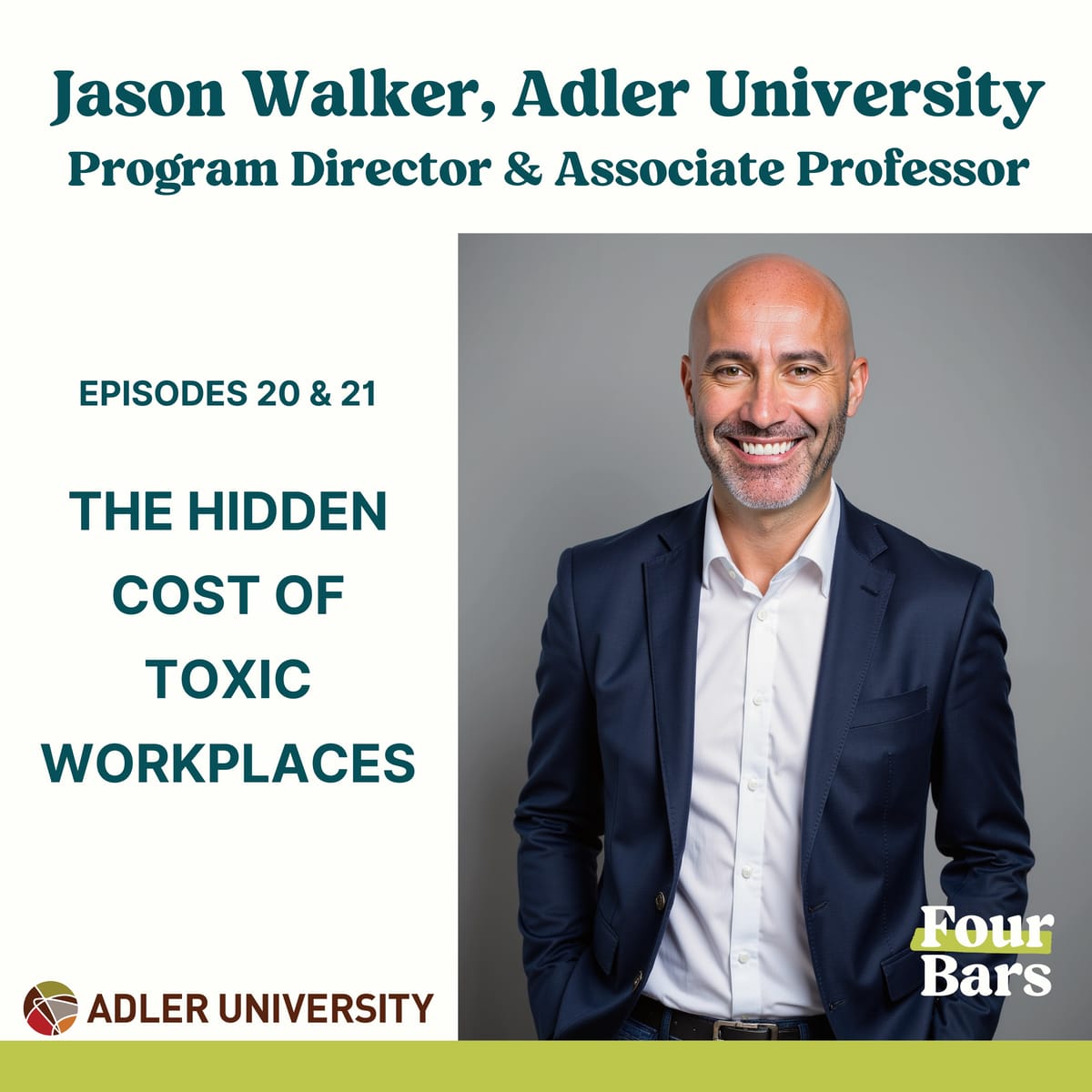Dr. Jason Walker, an internationally recognized expert with dual doctorates in psychology, pulls back the curtain on workplace bullying—a crisis affecting 75% of workers during their careers. Drawing from his own powerful personal experiences, Dr. Walker explains how workplace bullying isn't just "bad behavior" but a public health crisis costing our economy nearly a billion dollars annually.
The conversation draws crucial distinctions between proper performance management and actual bullying. "Holding people accountable is not bullying," Dr. Walker emphasizes, before detailing the true hallmarks of workplace abuse: gossiping, undermining, yelling, and creating fear. He explains how bullies often exhibit the "dark triad" personality traits—narcissism, Machiavellianism, and psychopathy—and how they're attracted to hierarchical organizations where they can exercise power.
Most disturbing is how organizations enable abusive behavior through ineffective policies. Dr. Walker reveals that when high performers or leaders are the perpetrators, "zero tolerance" policies are rarely enforced, sending a clear message: "This behavior is okay." The consequences are devastating—from cardiovascular disease and PTSD to suicide in extreme cases—with recovery taking years even after leaving the toxic environment.
For listeners currently experiencing workplace bullying, Dr. Walker offers practical strategies: document everything, seek mental health support, and find allies within the organization. The solution begins with leadership that models respect and addresses inappropriate behavior in real-time, creating cultures where psychological safety thrives.
Ready to create healthier workplace environments where everyone can thrive? Listen to our full discussion with Dr. Walker and discover how addressing workplace bullying can actually increase productivity and revenue by up to 30%.
Follow and stay connected:
Website: fourbarspodcast.com
YouTube: youtube.com/@FourBarsPodcast
Instagram: @edges_Inc
Facebook: EDGES Inc.
LinkedIn: EDGES Inc.
Never miss an update—follow, subscribe, and join the conversation!
More About this Episode
Workplace Bullying Is a Public Health Crisis, and Here’s What We Need to Understand
Bullying is not just something that happens in schoolyards. It is alive and well in today’s workplaces, and it is doing far more damage than many organizations realize. After our recent conversation with Dr. Jason Walker, an internationally recognized expert in workplace violence, trauma-informed leadership, and organizational culture, we walked away with one message loud and clear: workplace bullying is a public health crisis, and it is time we started treating it like one.
Dr. Walker gave us a candid, eye-opening look at just how common, complex, and costly workplace bullying really is. What we appreciated most was his ability to explain not just what it is, but how it works, what it does to people, and why businesses can no longer afford to ignore it.
This article unpacks those insights in a way we hope will be useful to leaders, teams, and anyone trying to understand what a healthy workplace really looks like.
Bullying at Work Is Not What You Think
One of the most critical distinctions Dr. Walker helped us understand is that performance management is not bullying. Leaders are expected to hold people accountable. They are responsible for helping teams meet objectives, guiding performance, and even making tough decisions.
But there is a line. When it is crossed, it becomes abuse.
Bullying is not about giving feedback or enforcing standards. It is about:
- Gossiping or intentionally damaging someone’s reputation
- Yelling, belittling, or humiliating someone publicly or privately
- Undermining a person’s authority, credibility, or work
- Withholding information to sabotage performance
- Excluding someone from meetings, projects, or communication
- Creating an atmosphere of fear or retaliation
And, as Dr. Walker pointed out, bullying is not always loud. It is not just aggressive. It can be passive, manipulative, and deeply strategic. Some of the worst harm is caused by people who smile in your face and cut you down behind closed doors.
The Hidden Epidemic of Workplace Bullying
Here is what stunned us the most. Dr. Walker’s research revealed that:
- 30% of all employees report being bullied in the last six months
- That number jumps to 60% in high-stress, hierarchical fields like academia and emergency services
- A staggering 75% of people say they have been bullied at some point in their career
Let that sink in. Three out of every four workers.
It is not just hurt feelings. Workplace bullying leads to:
- Sleep disturbances
- Chronic stress and anxiety
- Digestive issues and high blood pressure
- Depression and PTSD
- In some cases, even suicide
People do not simply “get over” this kind of abuse. As Dr. Walker shared, both from his research and personal experience, these experiences can stay with individuals for years. Many suffer in silence, and some never return to work the same.
Why Bullies Get Away With It
One of the most frustrating things Dr. Walker explained is why bullying continues even in companies that claim to have “zero-tolerance” policies. It is because those policies are often not enforced, especially when the bully is a high performer or a senior leader.
We have all heard this before: “Yes, they are tough to work with, but they get results.”
But results at what cost?
Here is what Dr. Walker told us that shifted our thinking. Organizations are often good at measuring cents, not dollars. They track the output of the bully, but not the cost of the damage they do:
- Talented people leave
- Team engagement drops
- Legal risks increase
- Productivity declines
- Innovation slows
- Culture erodes
In fact, studies show that when bullying is addressed and replaced with a healthy culture, productivity and revenue can increase by up to 30 percent. That is not just better leadership. It is better business.
Understanding the Dark Triad of Workplace Bullies
Dr. Walker introduced us to a term that helped explain a lot: the “Dark Triad.” It refers to a group of personality traits that are often found in chronic bullies:
- Narcissism – Believing everything revolves around them and they are the reason for every success
- Machiavellianism – Using manipulation and deception to get ahead
- Psychopathy – Showing a lack of empathy and a tendency toward cruelty
These individuals often seek out jobs in structured, hierarchical organizations. When their behavior is tolerated or even rewarded, they thrive and spread toxicity.
This led to a powerful insight. Culture is not what is written in a mission statement. Culture is what gets rewarded. If a company allows bullying because someone brings in revenue, then that becomes the culture.
HR Cannot Fix What Leadership Refuses to Confront
Another important takeaway from our conversation with Dr. Walker is that HR cannot fix a toxic workplace on its own. Too often, companies see bullying as a procedural issue. File a complaint. Conduct a meeting. Move someone to a different department. Issue a warning.
But these steps do not create real change unless the leadership is actively involved and committed to building psychological safety.
Here is what leadership must do instead:
- Step in and address bullying behaviors in real time
- Model respectful, inclusive behavior from the top
- Set behavioral expectations, not just performance goals
- Hold everyone accountable, regardless of rank or revenue
Policies are not enough. A culture of safety must be built by leaders who are willing to put values into action.
What Bullying Feels Like in the Real World
Dr. Walker shared a story from his own professional experience that showed just how personal this issue can be even for someone with expertise in workplace trauma.
In a former role, after asking a respectful question during a meeting, he was yelled at and humiliated by a senior leader. The attack continued later via text and was followed by months of exclusion from key meetings and projects. Although others reported the incident and supported his version of events, HR dismissed it.
He experienced intense anxiety, trouble sleeping, and a deep sense of isolation. Even as a specialist in this field, he found it hard to fully process and respond while in the middle of the situation. That part struck us deeply.
Eventually, he found another opportunity and left the organization, but the emotional toll lingered. He told us it took him years to truly move past it.
What You Can Do if You Are Being Targeted
Dr. Walker offered practical and thoughtful advice for those who believe they are being bullied at work. Here are the key steps:
- Document Everything Write down the time, date, details of the incident, who witnessed it, and how it made you feel. Over time, this record helps reveal the pattern of abuse.
- Seek Mental Health Support Talk to a therapist or counselor who can help you process what is happening and support you in developing strategies for resilience.
- Find Allies Do not go through this alone. Connect with someone you trust who can validate your experience and provide support. If appropriate, you can even strategize ways to interrupt or de-escalate harmful behavior together.
And most importantly, remember: this is not your fault. Bullying is not about you being too sensitive or not tough enough. It is about someone else choosing to misuse their power, and it is not acceptable.
Moving Toward a Culture of Respect and Safety
As we prepare for part two of our conversation with Dr. Walker, we are left with a strong sense of urgency. Workplace bullying is not just a difficult experience. It is a form of psychological violence that damages individuals and organizations alike.
Culture is not defined by words on a website. It is defined by behavior, and especially by what leaders allow. If bullying is tolerated, it becomes the norm. If it is addressed and prevented, people flourish.
We can build workplaces where people feel heard, supported, and safe. That is not idealistic. It is necessary. And it starts with all of us paying closer attention to how we lead, how we listen, and how we protect one another.



Member discussion: